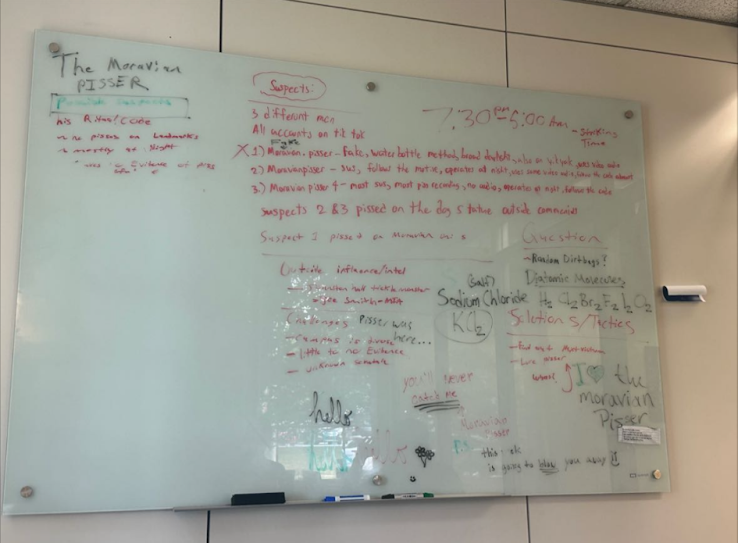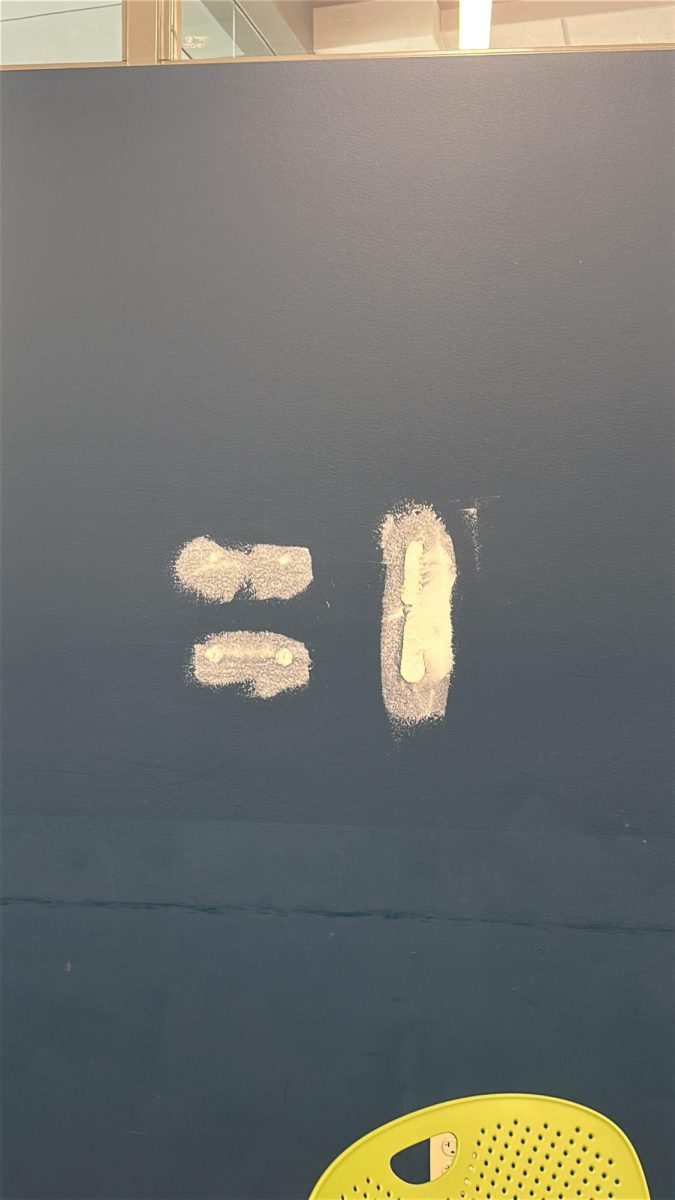
In July, a Moravian employee discovered a mold infestation in Colonial Hall, the University’s primary administrative building on Main Street.
According to Mark Reed, vice president for finance & administration, the mold was located in two storage areas on the lower level of the building. No employees formally reported that they felt sick, although some told their supervisors that they were experiencing allergy-like symptoms. The supervisors allowed the workers to either work from home or from a different location on campus.
Mold exposure may lead to allergy symptoms, such as watery eyes, runny nose, sneezing, itching, coughing, wheezing, difficulty breathing, headache, and fatigue. Repeated exposure to mold can increase a person’s sensitivity, causing more severe allergic reactions or even the development of asthma.
The cause of the mold is still being investigated and will likely be discovered as the university works to remediate the infestation. However, Moravian’s attempt to save energy for a period over the summer may have played a role.
Over the summer, the institution participated in an energy-saving initiative, which encouraged employees to work from home.
During this 45-day period, air handling systems were left on; fans ran, but the air being moved was not also being cooled. The average temperature in Colonial during this interim was 78-80 degrees.
“There was less outside air entering the building (people not in and out of the doors),” said Reed. “[So that] could have contributed to the problem, particularly in the lobby area.”
The air handling system in the lower level of Colonial is separate from the systems throughout the rest of the building; however, air can naturally flow between spaces.
After learning about the mold, the administration hired a professional company, SERVPRO, to clean the storage areas. When SERVPRO came on-site, they recommended contracting with an industrial hygienist to confirm levels of mold and determine the best way to clean the area.
The administration hired an industrial hygienist to test the storage areas as well as the main lobby on the lower level (which is now restricted). The hygienist completed air sampling tests, which identify and quantify mold levels in a given area.
The administration received the results of these tests on Sept. 25; based on these results, SERVPRO recommended further testing by an industrial hygienist, who Moravian then hired to do additional testing, including in the lobby area in the basement. Based on the results from this testing, the industrial hygienist recommended restricting access to the entire lower level of Colonial.
Because the mold is isolated to the lower level, where there are no offices, no employees have been displaced. The testing for the first floor showed no elevated mold levels, but additional testing will be done for that floor, as well as all of the others, as a precautionary measure.
As of Oct. 8, the ground floor of Colonial Hall has been sealed off, with the lobby, mailroom, vending area, breakroom spaces, and storage areas completely inaccessible until further notice. The mailroom in Colonial Hall has been temporarily moved to the first floor of the building during the remediation process.
Employees and visitors entering the building must use the first-floor entrance off of Main Street, as all doors to Colonial Hall ground level from Lot R are locked for now.
The administration interviewed three companies to determine the best vendor to address the problem and decided to contract with Safeway Environmental, who will be in charge of the cleaning process.
“We are currently working with Safeway to safely determine what needs to be discarded and what can be cleaned and salvaged. That work is underway now,” Reed said. “Once the areas are cleared, Safeway will begin to clean the area and determine the original source as to prevent a recurrence.”
In addition to SERVPRO, Safeway Environmental, and the industrial hygienist, the administration contracted another consultant who performed air quality tests on the remaining three floors to ensure those areas were within acceptable levels, and they were.
“When the hygienist did their original work, they did test the first floor, and the results were within the acceptable levels,” said Reed. “However, we wanted to provide reassurance for those on the first floor as well as the upper floors; thus our doing the additional testing.”
The time frame for resolving the damage and reopening the lower level of Colonial will depend largely on the ultimate source of the moisture and the completion of the remediation. As of Oct. 28, the cleaning process had not been started.
“We do not know the timeline; however, we expect this could take several weeks to complete,” Reed said. “The anticipated cost to clean will be between $40-50K. Any repair work will be above and beyond that.”
Reed said he cannot speculate on the total cost of the remediation, which will ultimately be paid out of the Facilities’ budget. The administration anticipates that Safeway Environmental may remove the carpeting in the lower lobby; beyond that, they will not know until the cleaning company begins its work.
“We expect to find out what needs to be done to prevent this from happening again,” Reed said. “It is not delayed or missed maintenance. There is a source of moisture somewhere, and we need to find it and stop it!”













